Faculty Research Mentors
Faculty Research Mentors are Lehman College faculty who conduct research in different areas of the natural and social sciences. REACH students are able to identify faculty research mentors who conduct research that may be of interesting to them and talk to mentors about the possibility of joining their lab. Once accepted into a research lab, REACH students are exposed to the field of research and obtain valuable skills to prepare them for graduate school and careers in research. Faculty research mentors help students to develop problem solving skills, critical thinking skills and guide students as they develop their own research questions and solve scientific puzzles. There are several disciplines in which research is conducted across Lehman College. Below is a list of Lehman College faculty researchers who accept undergraduates to work with them on research projects.
Anthropology
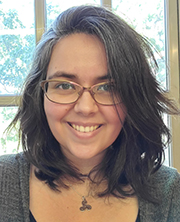 Victoria Dominguez
Victoria Dominguez
Contact information
Victoria.dominguez@lehman.cuny.edu
DA 019
We focus on basic and applied research in bone biology, looking at variation in bone microstructure in terms of health, biomechanics, and aging. Our interdisciplinary perspective combines biological anthropology, anatomy, biomechanics, and health sciences to address questions of skeletal health, repair, and maintenance, as well as develop applied methods from theoretical bases for use in forensics and bioarcheology.
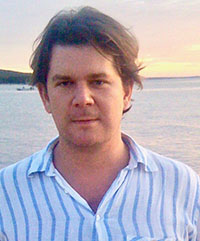 William Harcourt-Smith
William Harcourt-Smith
Contact information:
harcourt-smith@lehman.cuny.edu
DA 432
Our group focuses on reconstructing the evolutionary biology of early members of the human lineage. We are particularly interested in the suite of biological adaptations that enables modern humans to walk upright. We use advanced forms of shape quantification to assess the bony elements of fossil hominin species alongside those of ourselves and our closest living relatives, the great apes. In particular, we use 3D imaging techniques such as MicroCT and Geometric Morphometrics, alongside structural modelling such as Finite Elements Analysis. Researchers interested in this work should have some biological and statistical training and be comfortable learning new analytical techniques.
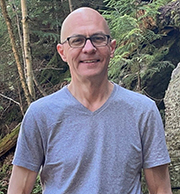 Ryan Raaum
Ryan Raaum
Contact information
ryan.raaum@lehman.cuny.edu
DA 427
The research in my lab uses population genetic and phylogenomic approaches to evaluate questions in human and primate evolution. Specific questions range from histories of human migration and admixture in eastern African populations to identifying genes associated with morphological change in primates. This work is highly computational and requires some familiarity working on the command line and programming in R and Python – or a willingness to learn. Besides these, we have started some small projects in urban ecology. See http://www.raaum.org for more information.
 Christa Salamandra
Christa Salamandra
Contact information
christa.salamandra@lehman.cuny.edu
DA 429
My research focuses on urban, popular, and media cultures in the Middle East. I’m currently completing a book manuscript on Syrian television drama creators whose work is aired throughout the Arab Middle East. My methodology combines content analysis of specific serials, ethnographic fieldwork with television creators and programming executives, and archival sources. For more, see http://christasalamandra.net.
 Victoria Sanford
Victoria Sanford
Contact Information
victoria.sanford@lehman.cuny.edu
DA 415
We conduct research and analysis on human rights in Latin America with a focus on Central America, Mexico and Colombia. We carry out quantitative and qualitative research on state violence, gender violence, corruption and migration. We analyze and compare data collected by government agencies, NGOs and the United Nations.
Biological Sciences
 Maryam Bamshad
Maryam Bamshad
Contact information
bamshad-alavi@lehman.cuny.edu
DA 134
We are using biometric technology and survey tools to research how the human brain makes decisions to engage in effortful thinking required for problem-solving. The research involves testing the activity of the nervous system after training the brain to engage in effortful mental activity. Students will learn how to conduct research on human subjects and how to use a multidisciplinary approach to investigate the brains’ enormous capacity for complex cognitive tasks.
 Haiping Cheng
Haiping Cheng
Contact information
cheng@lehman.cuny.edu
SC 3408
Our lab is currently focusing on an NIH-funded research project that studies the molecular switch that controls the transformation of Gram-negative nitrogen-fixing bacterium Sinorhizobium meliloti from free-living to host-invading forms. This molecular switch has been found in many bacteria, including animal and plant pathogens, and plant symbionts, suggesting they might be a common molecular switch controlling the transformation of bacterial cells from free-living form to host-invading in the presence of their hosts.
 Julio Gallego-Delgado
Julio Gallego-Delgado
Contact information
julio.gallegodelgado@lehman.cuny.edu;
DH 024
List of publications
My laboratory research focuses on the pathology of severe malaria. Specifically, by using in vitro and in vivo models of malaria, we aim to understand the changes taking place in brain endothelial cells during malaria infection and to identify the molecular pathways underlying acute kidney injury during severe malaria.
 Edward Kennelly
Edward Kennelly
Contact information
edward.kennelly@lehman.cuny.edu
SC 4406
My research interest is in the area of biologically active phytochemicals from medicinal and food plants. The biological activities of phytochemicals have been harnessed by humans for millennia as to improve health. The research conducted in my laboratory focuses on several groups of plants, including traditional Chinese medicines, edible tropical fruits, botanical supplements, and hops. We are specifically interested in phytochemicals with anti-inflammatory, cytotoxic, and antioxidant activities.
 Joseph Rachlin
Joseph Rachlin
Contact information
joseph.rachlin@lehman.cuny.edu
DA 233
My laboratory, The Laboratory for Marine and Estuarine Research (La MER) is concerned with the ecology, population structure and population dynamics of aquatic organisms of the waters surrounding the Bronx and Westchester counties. These include the Bronx River, the Saw Mill River, The East River, and the western end of Long Island Sound. Recently we have focused on fish cytogenetics, and fish osteology. In addition to learning the statistical procedures appropriate to evaluating the ecology and population dynamics of aquatic organisms, students will learn various cytogenetic techniques, and how to clear and stain fish to visualize their osteology, in order to perform comparative studies.
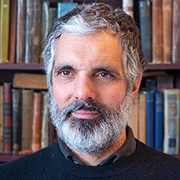 Stephen Redenti
Stephen Redenti
Contact information
stephen.redenti@lehman.cuny.edu
SC 3402
At the Redenti Lab, we are exploring cellular communication involved in the development and repair of retinal tissue. We are particularly interested in how cells respond to morphogenetic fields of discrete, localized biochemical and electrical signals. Our long-term goals are to help define and apply insights of cellular response properties to the development of therapies and biologically inspired devices to repair damaged retinal neural tissue.
 Renuka Sankaran
Renuka Sankaran
Contact information
renuka.sankaran@lehman.cuny.edu
SC 2408
Our lab focuses on addressing issues of food security, human health and nutrition. We are developing strategies to enhance nutritional quality of plant foods while mitigating accumulation of toxic metals such as cadmium and arsenic in important food crops and how it links to climate change since it is important for the future of food security and human health. We use several interdisciplinary approaches and tools spanning bioinformatics, functional genetics, molecular physiology, and biochemistry to aid in the development of foods with high nutritional quality and measurable impact on human health.
 Moira Sauane
Moira Sauane
Contact information
moira.sauane@lehman.cuny.edu
SC 3401
The research in my lab focuses on identifying the molecular basis of the translational control of protein synthesis and its importance in cancer, inflammation, and viral replication. In my lab, we aim to discover the precise molecular mechanisms by which cancer-therapeutic agents selectively kill cancer cells. Importantly the molecules we study are also involved in immunomodulatory and antiangiogenic processes, properties that can also be harnessed to fight cancer. The ultimate goal is to exploit this knowledge for new therapeutic developments.
 Eleanor Wurtzel
Eleanor Wurtzel
Contact information
wurtzel@lehman.cuny.edu
SC 2406
My lab conducts basic research to meet the challenges of global health, food security, and climate change. Student research projects span synthetic biology molecular biology, biochemistry, biotechnology, and bioinformatics.
- Watch this video to hear about where our research is headed next.
- Read about our published research in google scholar
- Read about tips for your STEM career
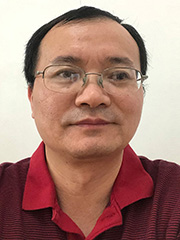 Zhi-Liang Zheng
Zhi-Liang Zheng
Contact information
Zhiliang.zheng@lehman.cuny.edu
SC 2404
Our lab aims to study nutrient sensing and cell signaling networks in plants, yeast, and humans. We have used a wide range of genetic, biochemical, cell biological and brain imaging tools to identify and characterize the key genes involved in cell shape formation, cell division control, sugar and mineral nutrient sensing, and alcohol use disorder. For details and recent publications, please visit our lab page.
Chemistry
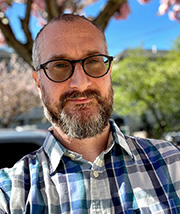 Benjamin Burton-Pye
Benjamin Burton-Pye
Contact information
benjamin.burtonpye@lehman.cuny.edu
DA 322
Our lab is centered around studying luminescent systems towards developing better imaging agents and assays through chemi-, electro- and persistent luminescence methodologies. This spans using luminescence as a tool to understand the chemical speciation of lanthanides, actinides and other nuclear fuel byproducts in the environment. In order to do this the lab specializes in the synthesis of organic, inorganic and nanoscale frameworks to control the coordination environments of our target systems.
 Columba de la Parra
Columba de la Parra
Contact information
delaparra@lehman.cuny.edu
SC 4402
Google Scholar link
Metastatic breast cancer remains a major challenge for breast cancer therapy and is the major cause of mortality in cancer. Our lab aims at identifying and understanding the molecular mechanisms of breast cancer metastasis. The research is directed in three major areas: (1) Translational control and metabolic reprogramming in advanced breast cancer, (2) Mechanisms of endocrine resistance, and (3) Molecular mechanisms of bioactive compounds in natural products for anticancer activity.
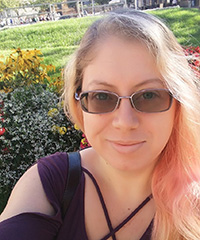 Melissa Deri
Melissa Deri
Contact information
melissa.deri@lehman.cuny.edu
DA 326
The principal mission of the Deri Lab is the integration and application of radiochemistry towards tangible benefits to society. This goal is largely focused on the application of radioactive metals for diagnostics and therapy within the field of nuclear medicine. The development of such radiopharmaceuticals involves interdisciplinary projects connecting biochemistry, organic, inorganic, and radiochemistry to the biomedical sciences. Current research projects include separations development for isotope production, radiometal chelation and stability studies, and bifunctional chelator development focused largely around medically relevant isotopes of scandium. Prof. Deri has received funding from both the Department of Energy and the National Institutes of Health for her research and offers opportunities for both graduate and undergraduate students to get involved. She aims to spread awareness of the beneficial applications of radioactivity and to make radiochemistry more accessible to a broader audience.
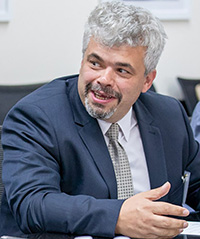 Andrei Jitianu
Andrei Jitianu
Contact information
andrei.jitianu@lehman.cuny.edu
DA 103
Our group is focused on materials chemistry with the main objective to develop new smart materials with various properties and applications. Our research goals are to develop hermetic barriers for electronic industry, anticorrosive materials for automotive industry and hydroxyapatite based nanocomposite for biomedical applications. For this we are using sol-gel process that has the ability to combine synergistically inorganic and organic phases producing hybrid organic-inorganic nanocomposite materials with predesigned optic, electric, magnetic hermetic properties. Beside these, we study the formation of gold and silver based hybrid nanocomposites. Students in the lab are multidisciplinary trained from the synthesis to characterization.
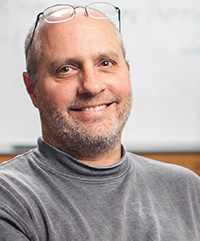 Thomas Kurtzman
Thomas Kurtzman
Contact information
simpleliquid@gmail.com
DA 101
Tom Kurtzman, PhD, is an associate professor at Lehman College, City University of New York, where his research focuses on the development of computational methods that aid in the discovery and rational design of new drugs. Professor Kurtzman’s approach applies a combination of statistical mechanical theory and computer simulations to better understand the physical principles governing the molecular recognition between proteins and small molecule drug candidates. His research contributions provide a framework to account for and quantify the role that water plays in molecular recognition.
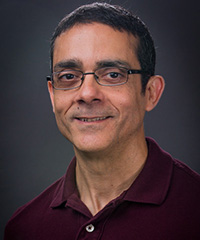 Gustavo Lopez
Gustavo Lopez
Contact information
gustavo.lopez1@lehman.cuny.edu;
DA 302
website
Our research group apply computational techniques to study the physical properties of systems in condensed phase. Some of the systems that we have been considered are metallic nanomaterials, proton transporting peptides, and self-assembled tripeptides. Recently., we have applied computational techniques to study the equilibrium and non-equilibrium properties of quantum liquids and biomolecular system cryopreserved in glassy water.
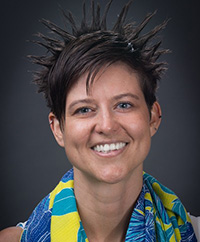 Donna McGregor
Donna McGregor
Contact information
mcgregor@lehman.cuny.edu
DA 307
website
 Naphtali O’Connor
Naphtali O’Connor
Contact information
naphtali.oconnor@lehman.cuny.edu
DA 107
Our research focuses on the development of hydrogels for wound healing applications. Our work focuses on developing a multi-functional platform to target the multiple characteristics associated with chronic wounds which includes elevated levels of reactive oxidative species, infection and protease activity.
Computer Science
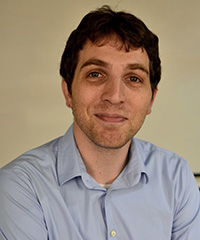 Itai Feigenbaum
Itai Feigenbaum
Contact information
Itai.Feigenbaum@lehman.cuny.edu
GI 137C
My primary field of interest is algorithmic game theory, specifically algorithmic mechanism design. In particular, I study ways in which optimization problems can be solved in environments where agents’ behavior and incentives must be taken into account. My work consists of both theory and applications, using ideas from the areas of approximation algorithms and game theory, among others.
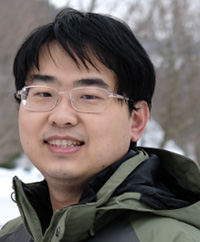 Liang Zhao
Liang Zhao
Contact information
liang.zhao@lehman.cuny.edu
GI 101A
My research focuses on the development of fast numerical algorithms for some fundamental problems in linear algebra including matrix low-rank decomposition and polynomial root-finding. I hope to obtain theoretical feasibility and complexity guarantees of these methods, as well as empirical evidence on using these them to accelerate applied computational tasks such as machine learning and particle filtering.
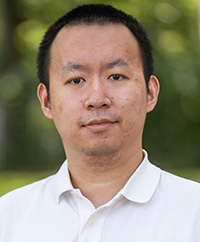 Mingxian Zhong
Mingxian Zhong
Contact information
mingxian.zhong@lehman.cuny.edu
GI 101A
My research interests lie in the areas of graph theory and scheduling algorithms. In graph theory, we are interested in on analyzing the structural properties of special families of graphs and how those properties help to make problems that are hard on general graphs, such as coloring problems and maximum stable set problems, easier on those families. As for scheduling problems, the objective is to schedule a set of jobs on the machines with respect to the minimum makespan, where the makespan is defined as the time that the last job is finished. There are many variants of the problem.
Earth, Environmental, and Geospatial Sciences
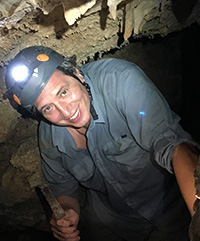 Yuri Gorokhovich
Yuri Gorokhovich
Contact information
gorokhovich@lehman.cuny.edu
GI 301A
Lab Research
Elemental (chemical) analysis of geologic (soils, rocks. minerals, etc.) and human-induced (black (Fe, Mn) stains on historical buildings, ash from incinerators, etc.) materials. I use X-ray Fluorometry (XRF) method with portable analyzer. Research is focused on new calibration method and analysis of enrichment ratio (ER) in soils that can tell us about human impact on environment in geosphere. Recent work was done in collaboration with researchers from Smithsonian and Van Cortland Park.
Computer-Based Research
Using data from satellites we can identify various parameters related to environment. One of the newest NASA sensors (ECOSTRESS) measures temperature of the earth surface at the unprecedented resolution of 70 m. Among other environmental applications this can help mapping freshwater resources in the coastal areas where temperatures of sea and fresh water are quite different. Using Geographic Information Systems (GIS) we can analyze spatial data. Currently we work on evaluation of the ECOSTRESS data quality in collaboration with researchers from Crete (Greece). In 2020 we conducted a pilot study with NASA on field verification of ECOSTRESS data.
Landslides are one of the prominent natural hazards in Caribbean region during hurricanes. We use available data from NASA and USGS to evaluate possibility of prediction risk areas and issuing warnings before hurricanes hit islands. The research is based on Geographic Information Systems (GIS) and statistical methods. The methodology is in the stage of development and data verification
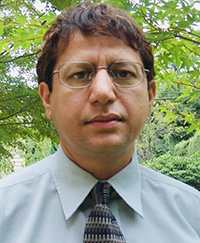 Hari K. Pant
Hari K. Pant
Contact information
pant@lehman.cuny.edu
GI 315
Interested in environmental science/biogeochemistry/global change, including sediment/soil and water quality, biogeochemical cycles of carbon, nitrogen and phosphorus(P), and ecological indicators that could be viewed as an early warning for an onset of major changes looming in aquatic and watershed ecosystems. For example, research focuses on characterization of organic P in soil/sediment/water, using 31P NMR Spectroscopy, enzymatic hydrolysis of organic P along with internal loading of P in lakes, rivers, and wetlands.
Mathematics
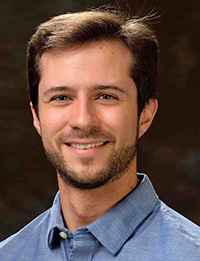 Renato Ghini Bettiol
Renato Ghini Bettiol
Contact information
Renato.Ghinibettiol@lehman.cuny.edu
GI 230B
The interplay between curvature and global shape and the stability and optimality (or lack thereof) in geometric structures are the central driving topics of my research. In addition to being of great interest to mathematicians, these areas of research provide the theoretical backbone to several applications in biomedical fields, including medical imaging, data analysis, modeling interfaces between fluids, and capillary phenomena. More information can be found on my website.
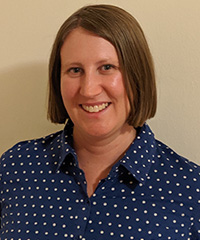 Megan Owen
Megan Owen
Contact information
Megan.Owen@lehman.cuny.edu
GI 137E
I develop combinatorial, geometric, and statistical methods and algorithms for analyzing non-Euclidean data, particularly tree-shaped data. My work has applications to evolutionary biology and medical imaging, and often uses data from both these areas.
Physics and Astronomy
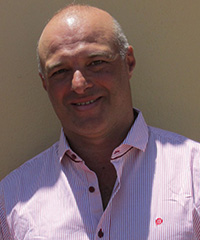 Luis Anchordoqui
Luis Anchordoqui
Contact information
luis.anchordoqui@lehman.cuny.edu
GI 132
Some of the most fundamental questions in modern physics arise at the interface of astrophysics, cosmology, and particle physics. What is the Universe made of? What is the origin of the elusive dark matter? What is the origin of non-thermal phenomena like cosmic rays? What are the properties of neutrinos? Many of these questions can be addressed in the framework of astroparticle physics which is the main focus of Anchordoqui's research. The toolset of this interdisciplinary field is diverse and combines aspects ranging from fundamental properties of elementary particles, through cosmic arenas of extreme violence powered by supermassive black holes, to multi-messenger astronomy and astrophysics.
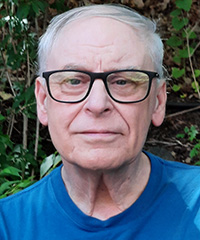 Christopher Gerry
Christopher Gerry
Contact information
gerry@lehman.cuny.edu
GI 134
My research is in theoretical physics and is within the broad areas of quantum optics, quantum information processing, and foundations of quantum theory. More specifically, I am working on properties and methods of generating nonclassical states of light, high-resolution interferometry with nonclassical states of light and Bose-Einstein condensates, cavity quantum electrodynamics, quantum information processing with coherent states and their superpositions, tests of quantum mechanics against local realistic theories on a macroscopic scale.
 Matthew O’Dowd
Matthew O’Dowd
Contact information
matthew.odowd@lehman.cuny.edu
GI 139
My research group studies the gravitationally lensed universe. We’re currently developing models and machine-learning tools that will allow us to analyze the enormous flow of data expected from the upcoming generation of all-sky surveys such as LSST. Our two principle science goals are: 1) to understanding how massive black holes influence the universe by studying the gravitationally lensed quasars; and 2) to determine cosmological parameters such as the cosmic expansion rate by measuring the differential travel time of quasar light reaching us via multiple gravitationally lensed pathways.
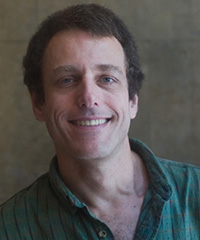 Daniel Kabat
Daniel Kabat
Contact information
daniel.kabat@lehman.cuny.edu
GI 136
Most of my research is on gravitational aspects of string theory, in particular the AdS/CFT correspondence. The ultimate goal of this research is to understand quantum gravity, including quantum properties of black holes, in a mathematically well-defined setting.
Psychology
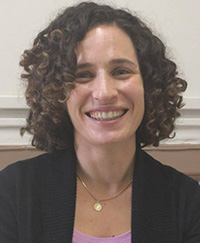 Mia Budescu
Mia Budescu
Contact information
mia.budescu@lehman.cuny.edu
GI 107F
I am a developmental psychologist who is interested in adolescent and young adult development. My research primarily looks like at stress and coping among populations experiencing financial and social adversity. Most recently, I conducted a study on youth (ages 16 – 24) experiencing homelessness and their experiences with discrimination. Moving forward, I would like to collect data on both social and emotional resilience among this population. Students my lab will learn how to design and conduct psychological surveys, recruit study participants, and data analysis using both SPSS and R.
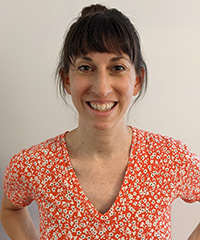 Anna Luerssen
Anna Luerssen
Contact information
anna.luerssen@lehman.cuny.edu
GI 118
Research conducted in the Lehman Relationships Lab is focused on better understanding factors that help and hurt the success of romantic relationships. Some of this work evaluates how background (e.g., dynamics with parents) and personality (e.g., self-esteem) variables relate to the ways that people interact with romantic partners. We also study how external stress (e.g., work, financial, household demands) can bleed into the relationship and how stress can be better managed for the benefit of the individual and the couple. Students in the laboratory may run participants through in-person sessions, code audiovisual data, enter data, and run analyses. All students are required to attend laboratory meetings during which we discuss scholarly readings and conduct professional development training.
 Stephen Holochwost
Stephen Holochwost
Contact information
holochwost@lehman.cuny.edu
I am Director of the Regulation, Education, and Neuroscience (ReNeu) Lab at Lehman College, and also serve as a co-Director of the Research on Advancing Equity through the Arts in Children (REACH) Lab, a National Endowment for the Arts Research Lab. Across these two laboratories, I apply an ecological systems perspective and the principles of developmental science to examine the effects of the environment, and particularly poverty and parenting, on voluntary forms of self-regulation (e.g., executive functions) and the involuntary activity of neurophysiological systems that support self-regulatory abilities. This research is directly relevant to my applied work, which examines the efficacy of educational interventions for children in poverty, with a particular emphasis on early education and music. The common thread running through both these lines of work is the need to understand how poverty impacts child development, and how programs that expand educational opportunities for children can mitigate those effects.
Sociology
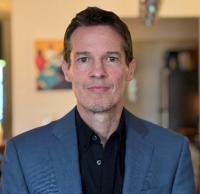 Christopher Bonastia
Christopher Bonastia
Contact Information
christopher.bonastia@lehman.cuny.edu
CA B62
My research examines the politics of racial inequality and segregation through sociological and historical lenses. I have published three books on this topic. In my next project, which is still being developed, I hope to use music as a vehicle to explore political and social history.
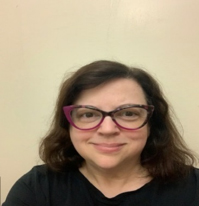 Susan Dumais
Susan Dumais
Contact Information
Susan.Dumais@lehman.cuny.edu
SP 130
I am a sociologist who specializes in the sociology of education and the sociology of culture, and often, the intersection between the two. I use both qualitative (interviews, focus groups, content analysis) and quantitative (statistical analyses of large, nationally representative data sets) approaches in my research. I have studied the association between arts participation and educational outcomes and more recently have interviewed first-generation college students with children to understand how their parenting practices differ from what they experienced in their childhoods.
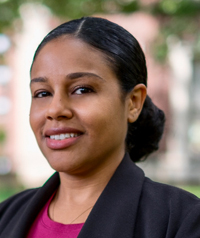 Brittany Fox-Williams
Brittany Fox-Williams
Contact Information
brittany.foxwilliams@lehman.cuny.edu
CA B62
My research examines topics related to race, trust, and social inequality in the United States. In my primary project, I study the role of trust in student-educator relationships, the salience of trust for student outcomes, and racial differences in trust among youth. My research also investigates the role of trust in urban technology implementation and the reentry experiences of formerly incarcerated individuals in New York City.
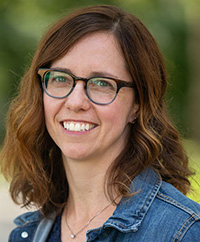 Jennifer Laird
Jennifer Laird
Contact information
jennifer.laird@lehman.cuny.edu
CA B59
My research focuses on material hardship, poverty, and inequality in the United States. I have published papers documenting the decline in job stability for Black public sector workers, the factors contributing to poverty differences across states, and the vulnerability of U.S. citizen children to changes in immigration policy. My current work focuses on the causes and consequences of energy insecurity. As the Deputy Director for the NSF Center for Smart Streetscapes, I also recruit students for data science research projects focused on artificial intelligence and inclusivity in urban environments.
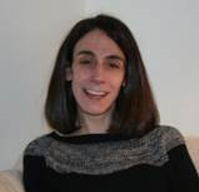 Esther Wilder
Esther Wilder
Contact Information
esther.wilder@lehman.cuny.edu
CA B61
My current research focuses on best practices for strengthening students' quantitative literacy and data analysis skills. With support from NSF, my CUNY-wide research team has made use of both qualitative and quantitative methods to investigate strategies that effectively improve college students' quantitative skills and promote positive attitudes towards research involving hands-on data analysis. In addition to my work on best practices in STEM education, I also have research interests that focus on the importance of biomedical and social factors in shaping the experience of disability, factors that promote quantitative literacy skills, and the roles of race/ethnicity and religion in explaining demographic and economic outcomes. I have also looked at trends and patterns in scholarly publishing and access to the scholarly literature of demography and gerontology as well as the impact of AI on research and teaching.

